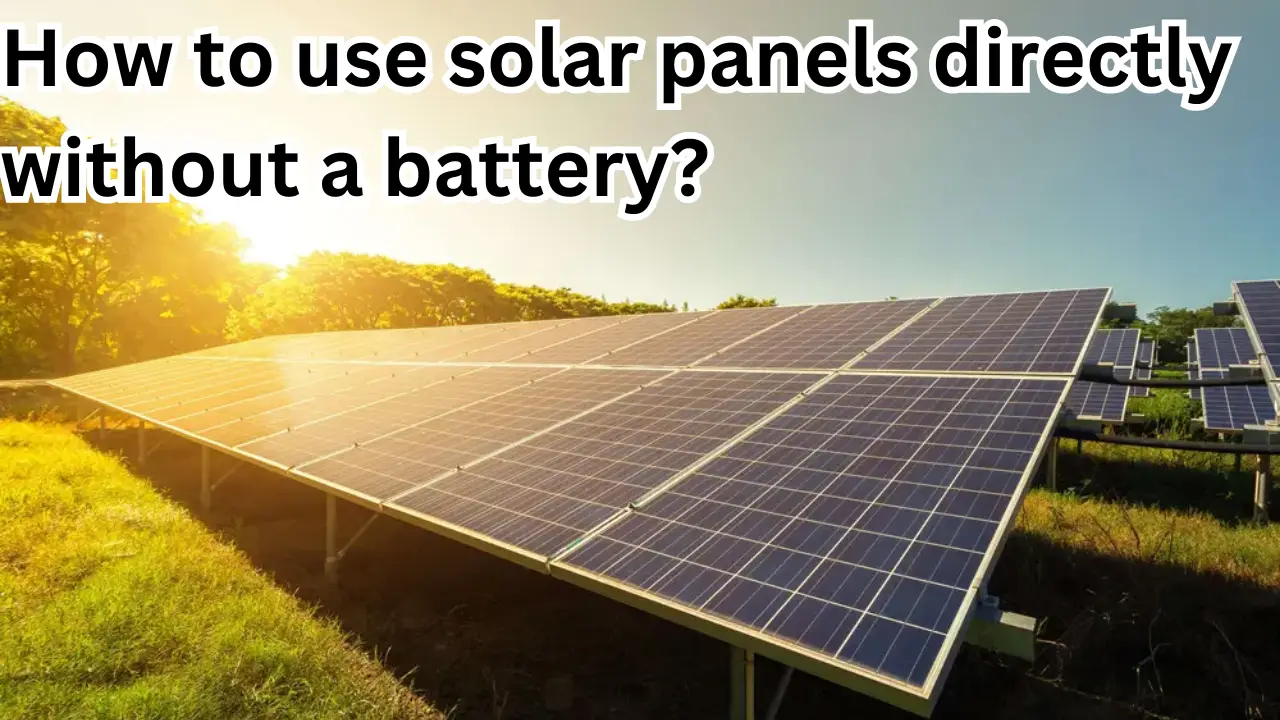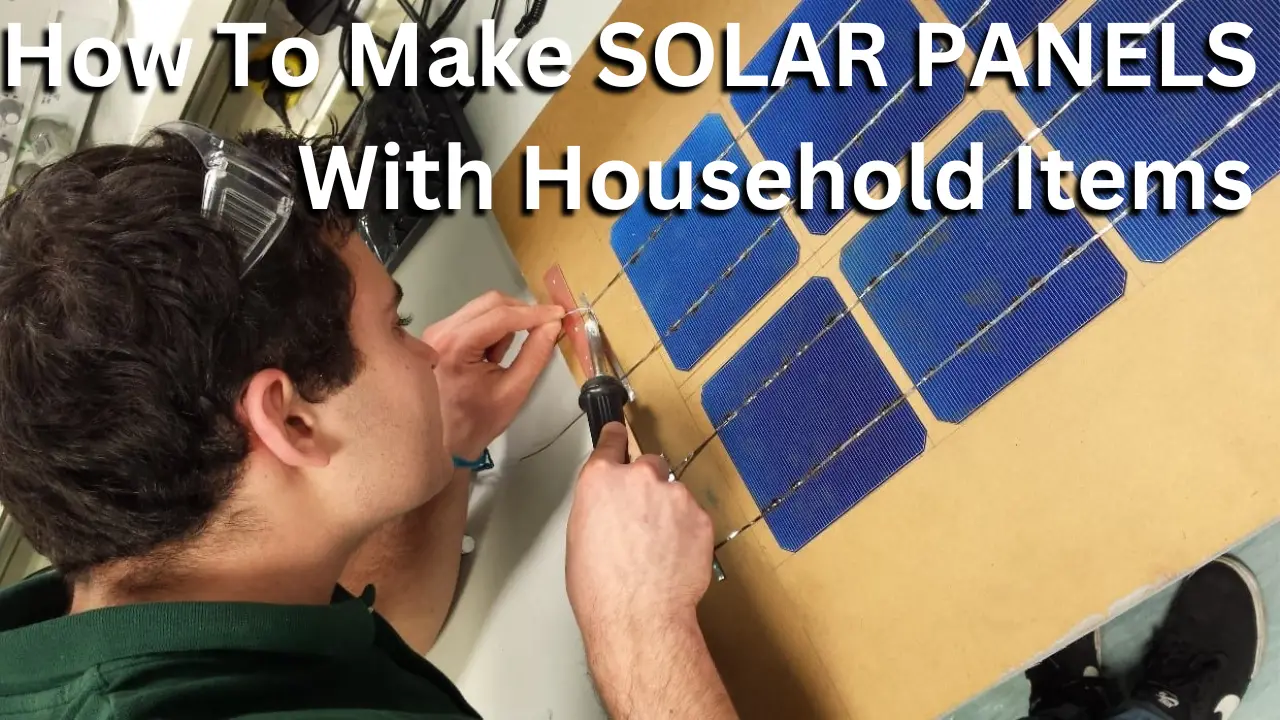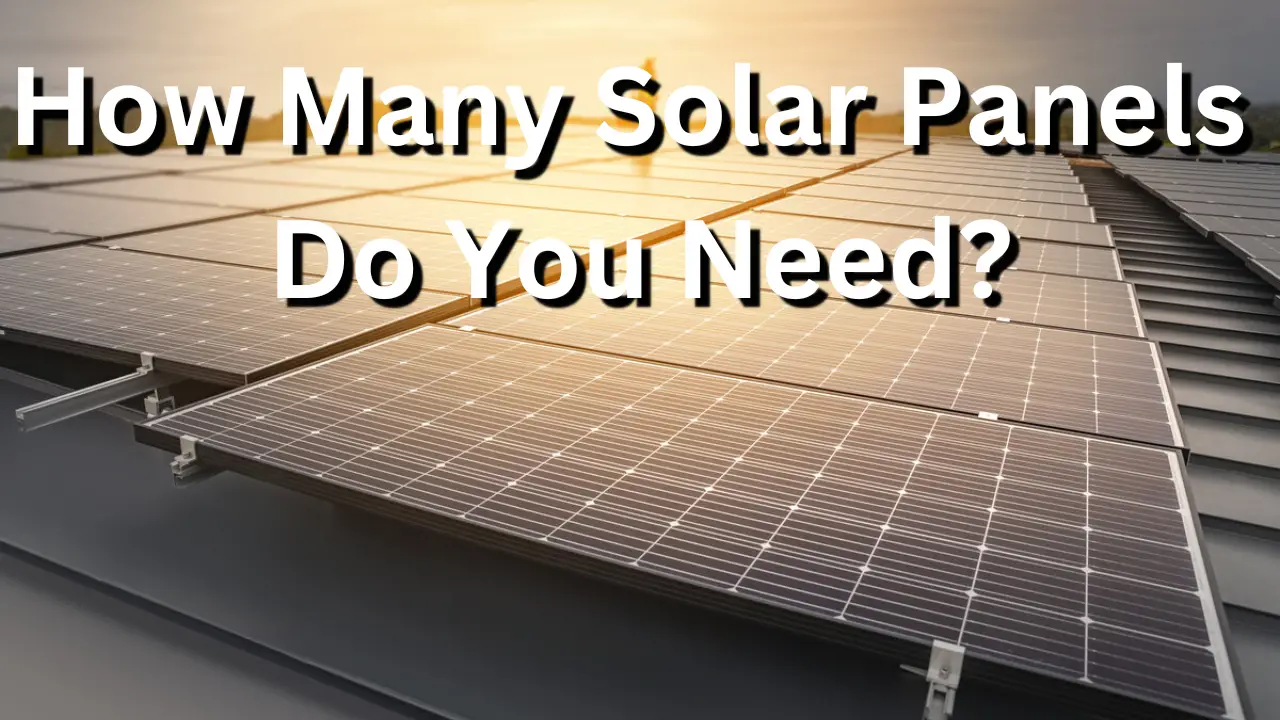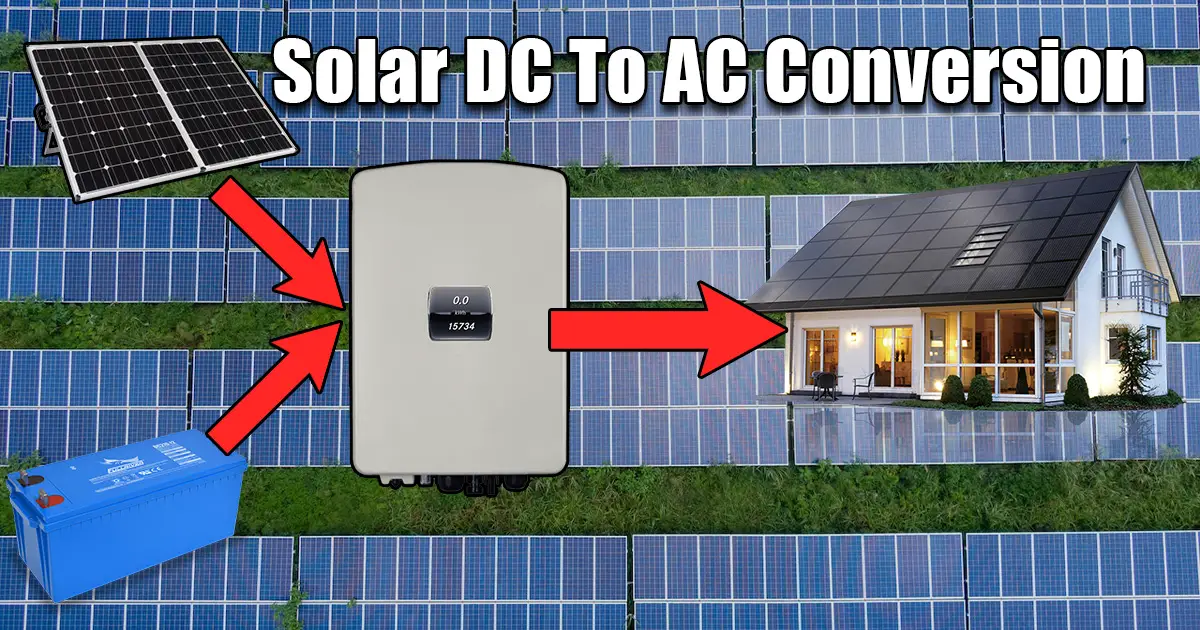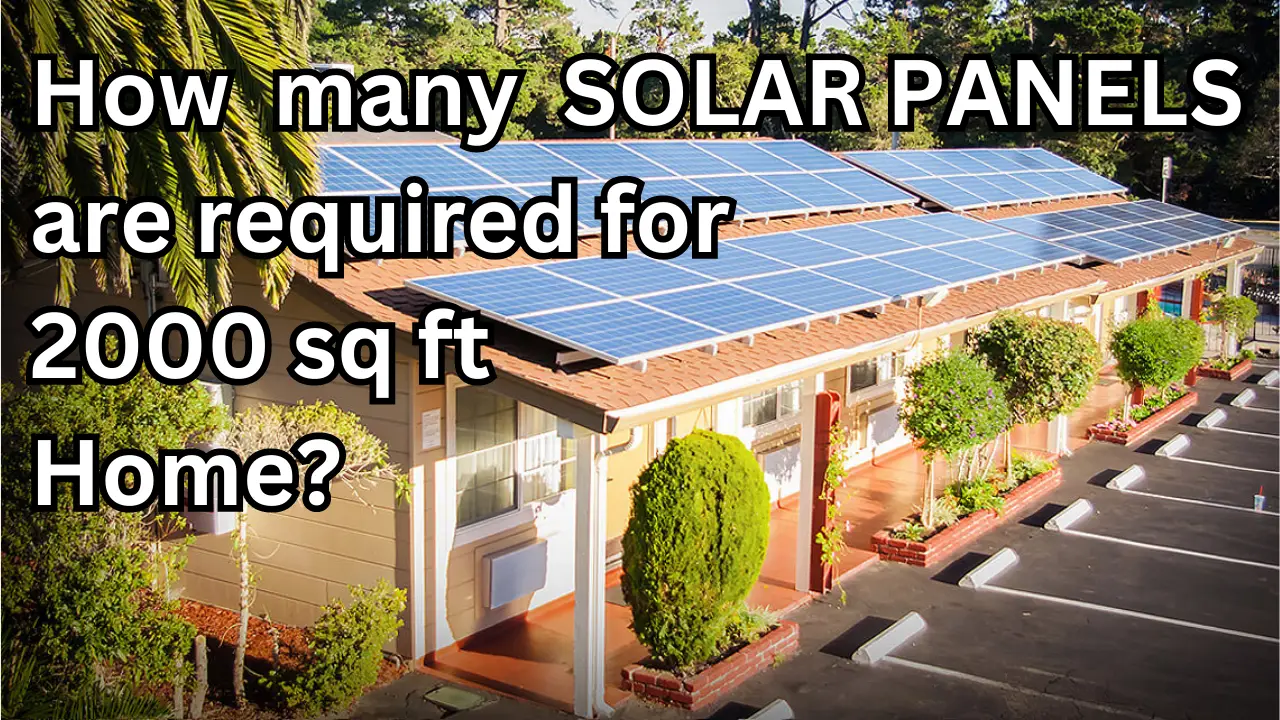You might be asking if a solar battery bank is necessary for residential solar systems with all the talk about energy storage. Is it even possible to power your house with solar energy without using batteries?
The quick response is yes, you can. It is not always required to have a solar battery backup, while it might be helpful in some situations. This article will examine how you can use a solar panel directly without batteries and how this works.
How to Use a Solar Panel Without a Battery Directly?
You see, you can’t store solar energy without a battery. The energy solar panels generate during the day is sufficient to run your entire house. However, solar output is lower early in the day and late at night, when there may be more energy demands. You may be waking up, getting ready for the day, preparing dinner, or helping the kids with their homework at certain times of the day.
You will therefore require a lot of power. Unfortunately, the production of solar panels is just beginning to pick up steam or is beginning to decline during this time. For solar owners without battery storage, this is a significant challenge. You should use the grid, which serves as a sizable energy backup system, to address this issue.
During the day, the energy that your home needs should be readily available from the solar panels you have installed. You can feed the grid with this extra energy to power your neighborhood. Simply put, you consume solar energy and feed any excess back into the grid when the sun is out, and you draw power from the grid when it isn’t.
A grid-tied system is the name for this kind of configuration. It is thought to be a fantastic technique to “store energy” without using batteries.
Can we use a solar panel and an inverter without using batteries?
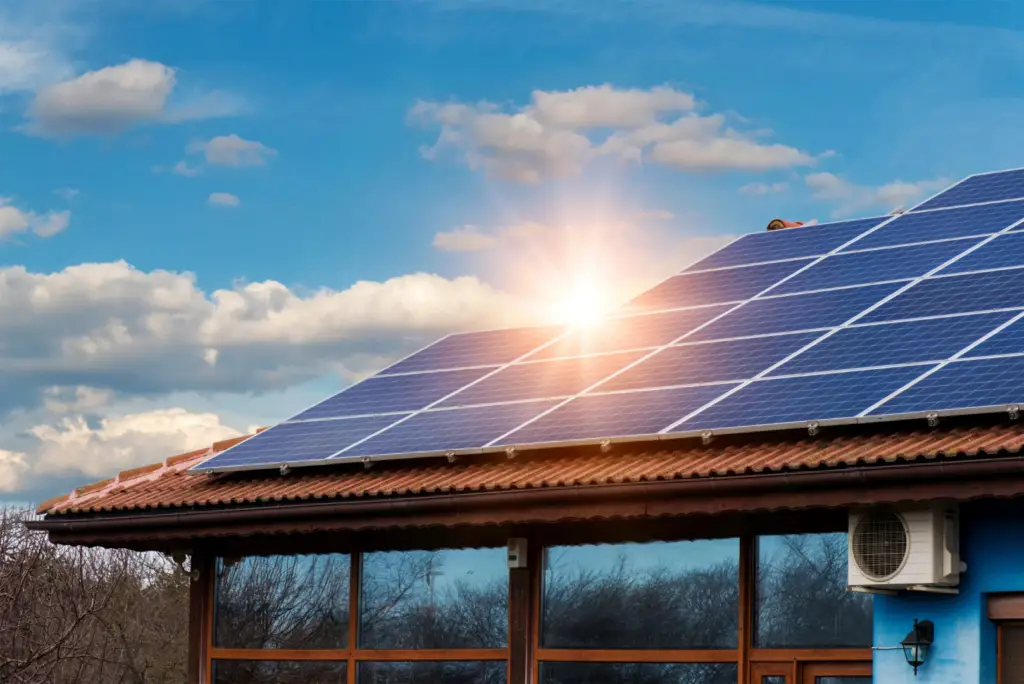
Yes, but only if you feel at ease utilizing the grid and don’t mind if there are power outages. Most power outages in the USA are resolved within a few hours or, at most, a day or two.
In the event of a power outage, a conventional solar battery has the ability to power essential loads for one or two days. But whether you utilize a battery or not will depend on how much it costs compared to the benefits it provides.
Your carbon footprint will still be greatly reduced even if you only use solar electricity with no energy storage and draw from the grid. However, if using power from fossil fuel-based plants while your solar panels aren’t producing bothers you, you can also ask your utility company to provide renewable energy sources solely.
Remember that not all areas still offer these renewable programs. Therefore, to find out whether this option is accessible to you or not, first check with your utility provider.
Why Are Batteries Such A Need?
Batteries are necessary for off-grid PV systems for two main reasons: energy storage and voltage and frequency stability. In this part, we discuss their significance and the limitations of using solar panels alone to power loads in off-grid PV systems.
Stability of Voltage and Frequency
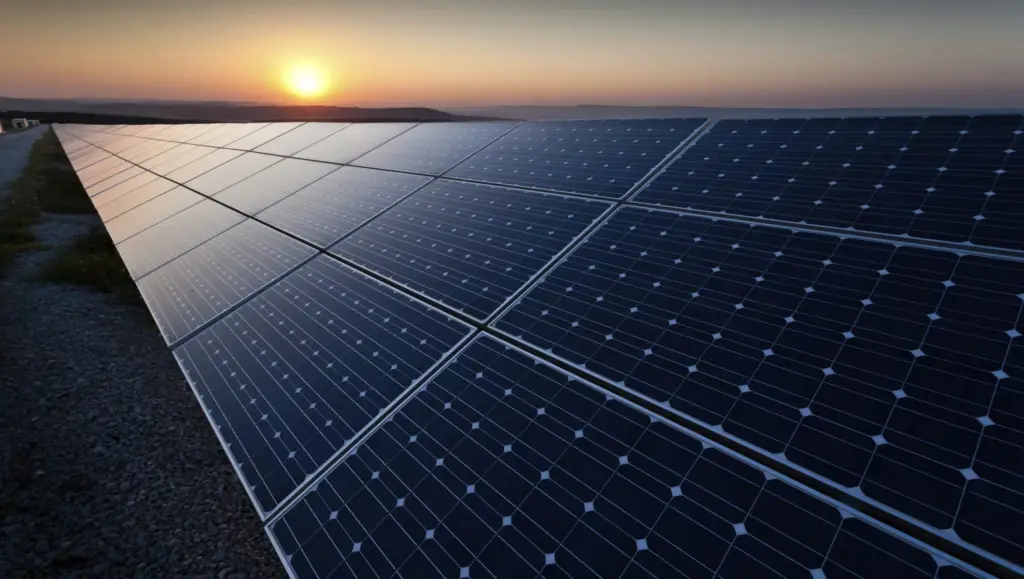
The stability for voltage and frequency is the major factor that solar panel installers use to justify using solar energy storage in off-grid PV systems. The power required by an AC load occurs in a matter of milliseconds and can potentially cause instability in the network’s voltage or frequency.
The solar inverter has some control mechanisms in place that allow it to adjust the power output while maintaining voltage and frequency stability, preventing voltage and frequency instability. Batteries are essential for an off-grid solar system since the solar inverter needs only one thing to accomplish this: a constant voltage supply at the input.
Energy Storage
Energy storage is the second factor that makes batteries so important for an off-grid solar panel installation. Off-grid houses can only make electricity when the sun is out. This means that the solar panels won’t make any electricity when the sun starts to set, leaving the off-grid home without power.
An energy storage system, often known as batteries, is required for a family to be comfortable and have uninterruptible electricity every single day. The batteries allow the home to become solar energy self-sufficient, ensuring that the family has access to electricity the entire day and on cloudy days when the PV systems may not be able to generate enough power to run the load.
The power usage of the house and the desired level of autonomy determine the backup energy storage system’s capacity. A homeowner can install twice or three times the required amount of storage to provide electricity for several days when the solar panels are not producing enough energy.

Does My Solar System Need A Battery?
Battery storage is frequently a “nice to have” when using solar panels at home. A solar battery bank is helpful, if not entirely necessary, in an increasing number of circumstances. Following are some of the situations where you could find having a battery bank beneficial –
You frequently or continuously lose power
Firstly having a battery backup is a smart idea if you live in an area with any of the following-
- a faulty electrical grid
- recurring natural catastrophes
- PSPS (Public Safety Power Shutoff) incidents
A home battery bank is extremely important if you depend on certain devices, such as medical gear or an electric well pump, to run when the grid is down.
Your net metering policy is unfavorable
Battery storage, in addition to providing backup power, may also provide significant energy cost savings. Energy utilities are attempting to replace or repeal net metering laws in various jurisdictions. For instance, the planned NEM 3.0 regulation in California would result in a 75% reduction in the value of solar exports.
Some utilities and states have no net metering regulations at all. It may make more sense in some locations to store and use your own energy rather than re-inject it into the system.
Your utility has time-of-use rates

Grid electricity costs in various locations change throughout the day depending on demand. The term “time of use rates,” or TOU, refers to this.
When people are cooking, watching TV, and using the heat or air conditioning at home in the evening, electricity prices are often at their greatest. Unfortunately, evening solar production is poor, forcing solar owners to draw power from the grid.
With battery storage, you may utilize peak pricing by utilizing, or even exporting, the inexpensive solar electricity produced and stored during the day. This is especially helpful if you use a lot of power for things like an EV, air conditioning, or electric heat.
You desire energy independence
You will need a battery storage device to store your solar generation if you reside in a distant, undeveloped location without a centralized utility system. You must do this if you want to keep the lights on at night when your system isn’t producing.
Many people prefer to produce and store their own clean electricity, even if they are close to an electric utility system. The majority of utilities produce their electricity using fossil fuels. Combining solar power and battery storage can lower the need for dirty energy.
Can Solar Panels Be Used Without Battery Storage?
Absolutely! In actuality, the majority of household solar systems today run without battery storage. You might not need a battery if you’re okay with using the grid and aren’t very concerned about power outages.
Battery storage for your solar panels does, however, have advantages. Battery storage is becoming more advantageous in addition to providing backup power as net metering regulations change and more utilities switch to time-of-use rates. Additionally, it provides a way to achieve energy independence and completely abandon fossil fuels.

Pros and Cons Of Using Solar Panels Without Batteries
Pros
- Using a solar panel that does not require a battery allows you to avoid the expense of purchasing batteries.
- Solar panels equipped with the appropriate inverters during a power outage can even supply electricity to a limited number of low- to medium-sized loads.
Cons
- It is impossible to utilize solar panels to power a load during the night if you do not have a battery to store the energy.
- On days when there is less sunlight and cloud cover, there will be no backup power available to utilize.
- Even if the battery’s voltage is rather steady, there is still a possibility that the load could be compromised.
- A load that requires more power than what the panels are generating will not be able to be powered. This will not be possible.
FAQs
Can I use inverters and solar panels without a battery?
Yes, you can utilize solar panels and inverters without battery storage, provided you are connected to the electrical grid. It’s crucial to remember that grid-tied solar systems are typically turned off during blackouts to protect utility workers from being electrocuted.
You may directly power important loads during blackouts even without battery storage, thanks to the products made by select inverter manufacturers, like Enphase and SMA. You can do this by “islanding” your solar system.
Without batteries, how does solar energy function?
Solar systems often use the utility grid as a battery without battery storage. Your home is initially powered by solar energy, and any extra energy is fed into the local grid to power nearby equipment. When the solar system is not providing enough energy, the house uses the local grid.
In order to balance the energy they draw from the grid, homeowners who use net metering receive credit for any excess energy. Due to decreased solar system expenses, owners can essentially replace their monthly electricity bills.
Conclusion
Finally, it can be argued that solar panels don’t require batteries and may be used directly. During the day, you can use a grid-tied device to power your home with solar energy and send any extra power back into the electrical grid. You may lessen your carbon footprint and perhaps even make up for your electricity expenses in this way.
It’s crucial to keep in mind that you won’t have backup power throughout the night or on overcast days when solar production is lower without batteries. Batteries might also be helpful if you wish to achieve energy independence or live in an area where power outages are common.

